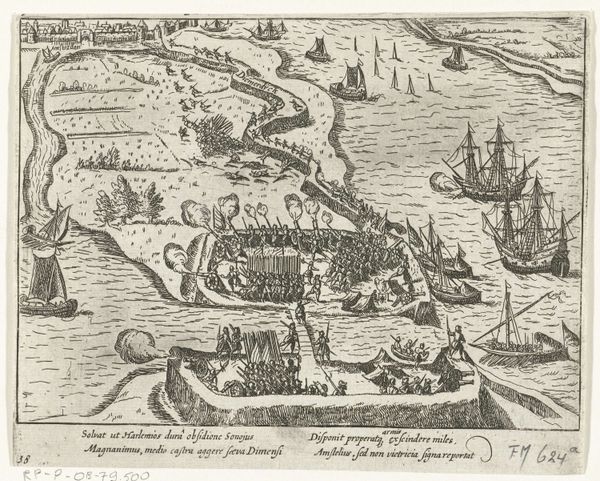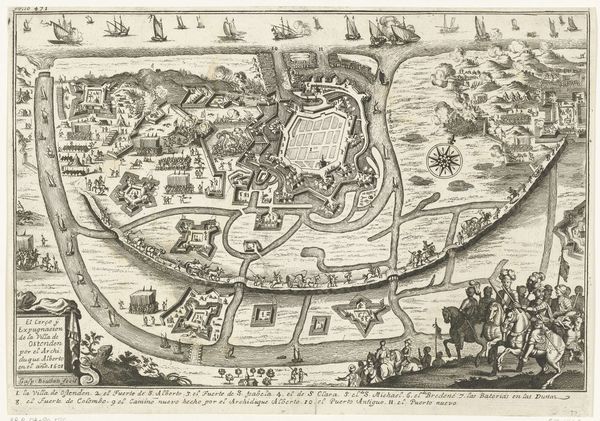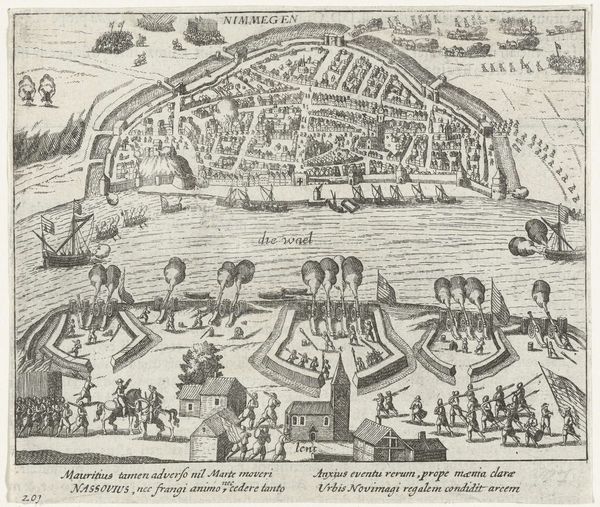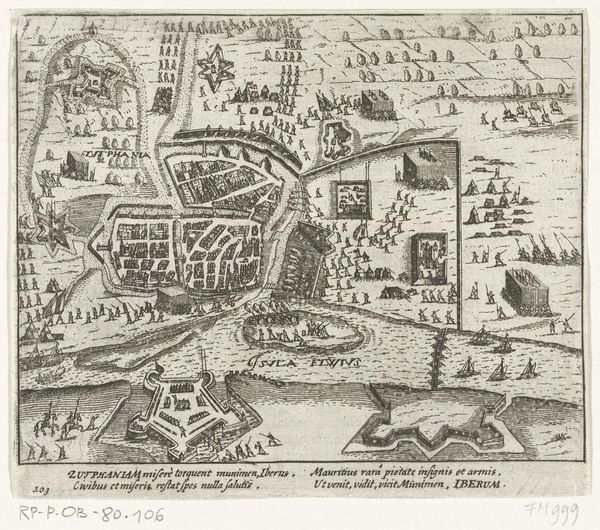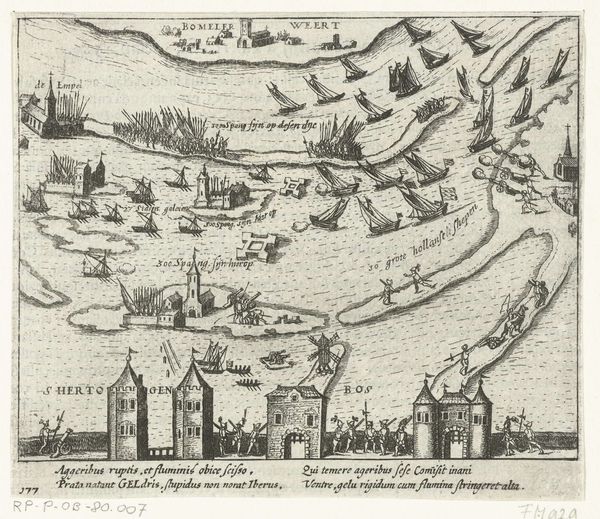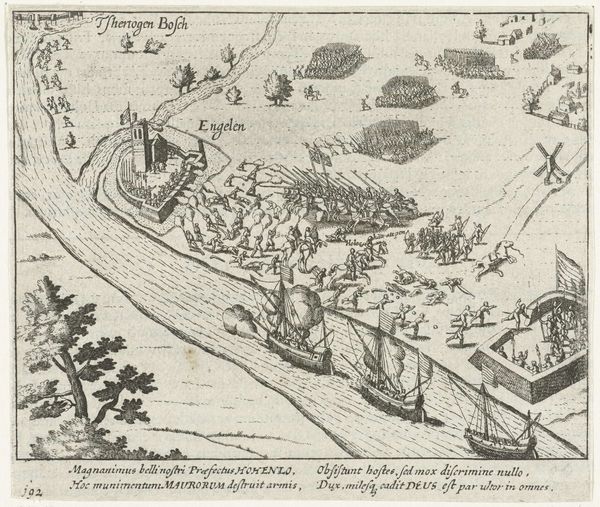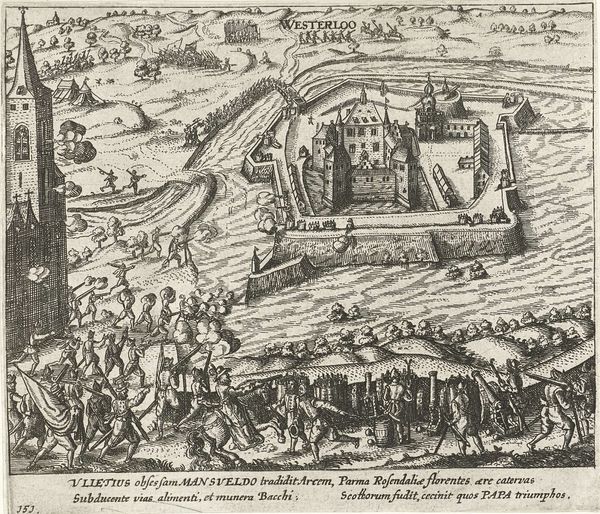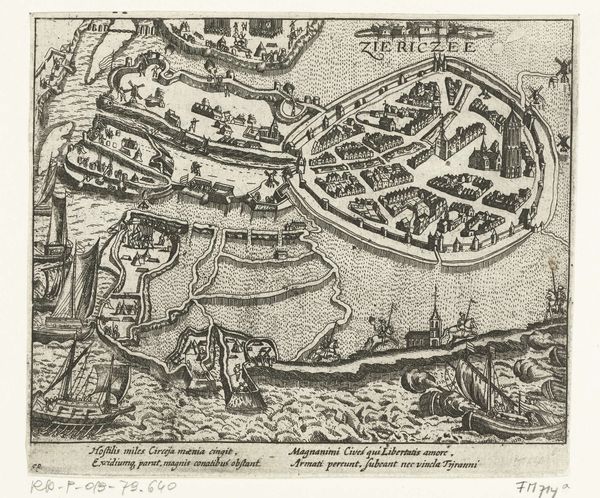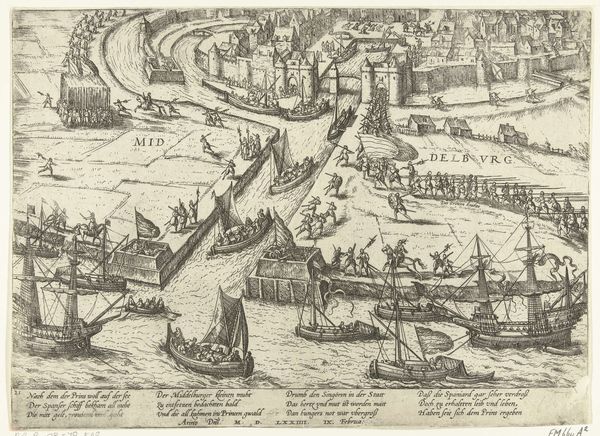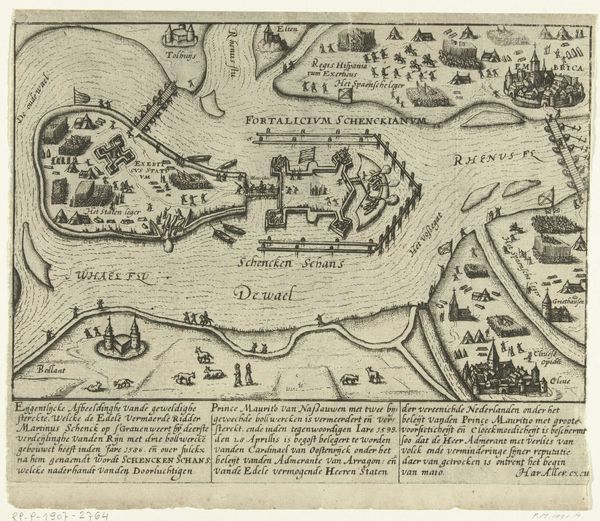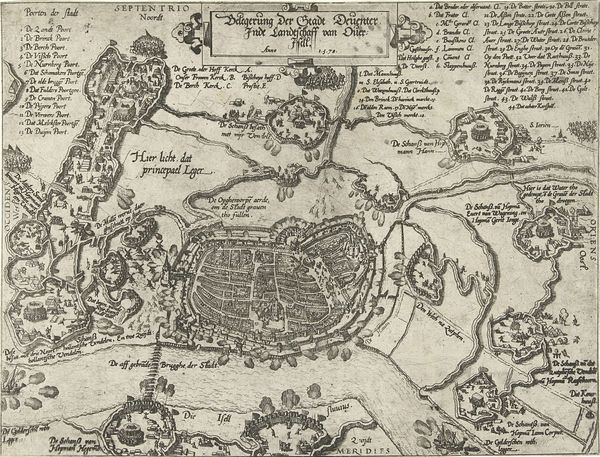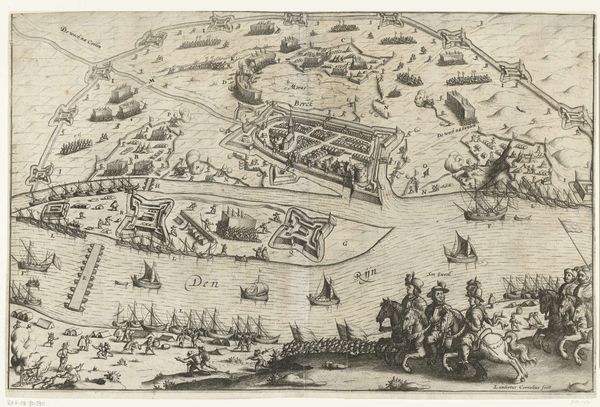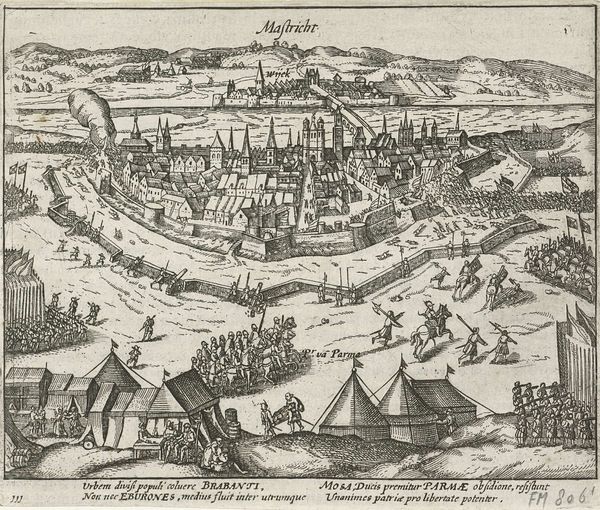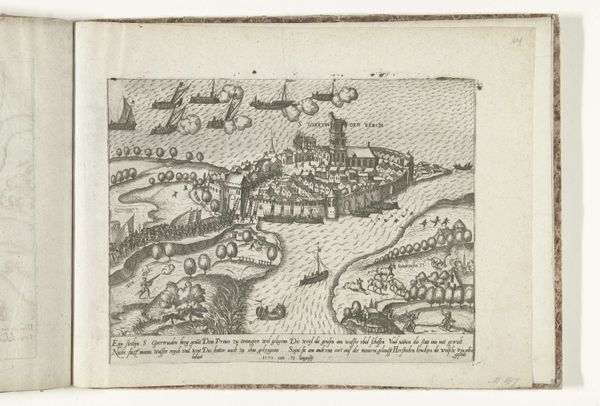
print, engraving
#
narrative-art
#
baroque
#
dutch-golden-age
# print
#
landscape
#
perspective
#
figuration
#
geometric
#
line
#
cityscape
#
history-painting
#
engraving
Dimensions: height 135 mm, width 160 mm
Copyright: Rijks Museum: Open Domain
Editor: This engraving, titled "Siege of Rheinberg by Elector Ernst of Bavaria, 1586," dates from around 1613-1615 and is held at the Rijksmuseum. I am struck by the detail achieved in this depiction of a fortified city. What are your thoughts when looking at this piece? Curator: What interests me is the geometrical rigor employed in representing spatial depth and the overall composition. Notice how the engraver uses line and form to delineate the city walls, the fortifications, and the Rhine River itself. Editor: It's like a map but also tries to be a picture. Curator: Precisely. We can look at this tension between objective cartography and perspectival representation. Consider the aerial viewpoint— it's not a realistic vantage point, yet it offers a comprehensive view of the city's structure and the surrounding siege. Does the abstraction help the composition, in your view? Editor: I think so. The rigid shapes of the forts contrast well with the organic shapes of the river. Also, do you notice how the groups of figures, the little lines that become people, draw the eye? Curator: Indeed. This methodical organization and stark linearity contribute significantly to the engraving's visual impact. Furthermore, consider the economy of means: how much information is conveyed through such a limited palette and technique! Editor: So by examining these elements, we can better appreciate the technical skill and the choices the artist made. Curator: Absolutely. By understanding the visual construction of the image, we unlock layers of meaning beyond its historical subject matter.
Comments
No comments
Be the first to comment and join the conversation on the ultimate creative platform.
